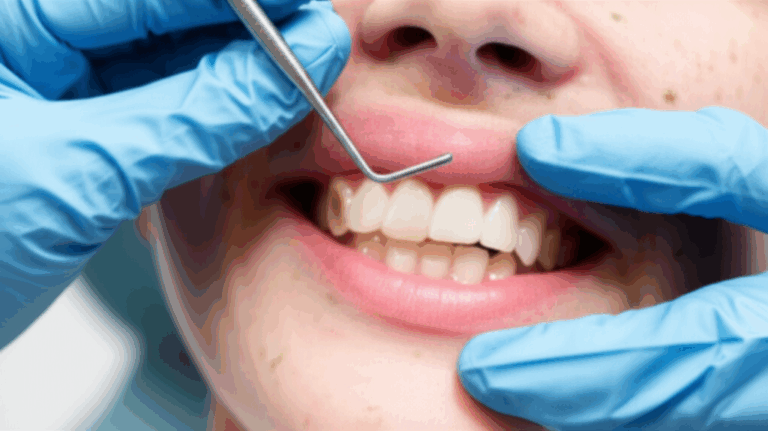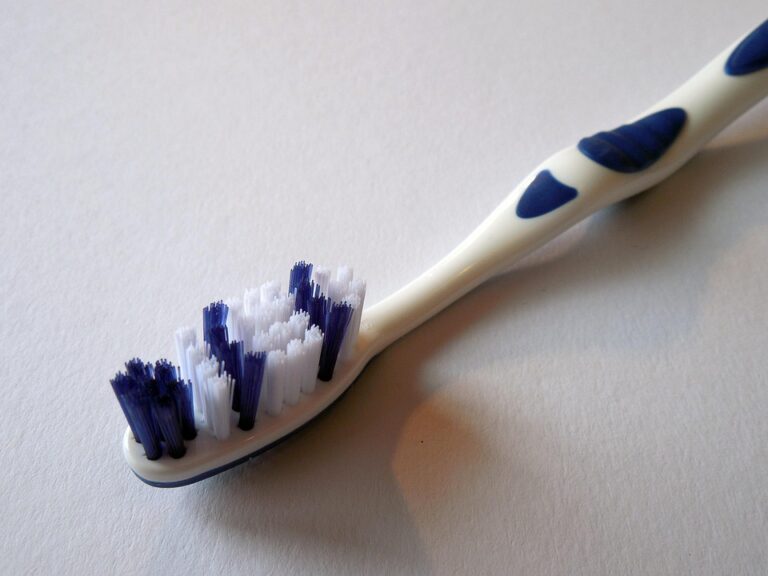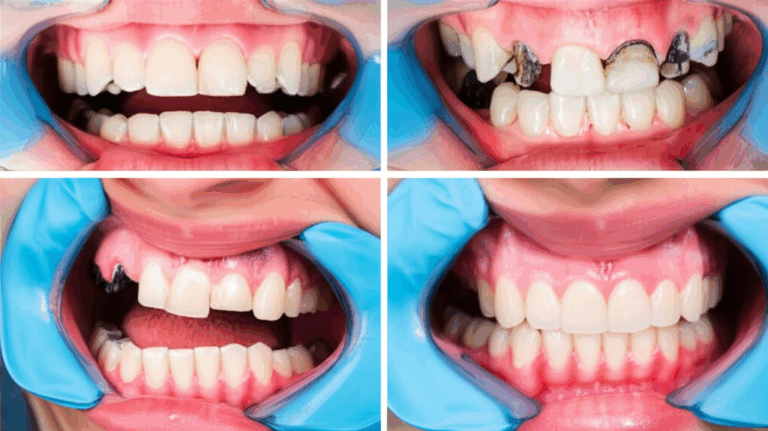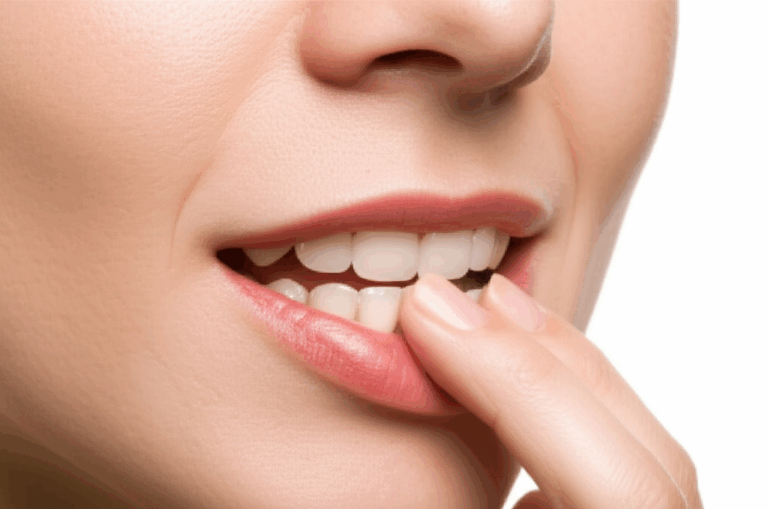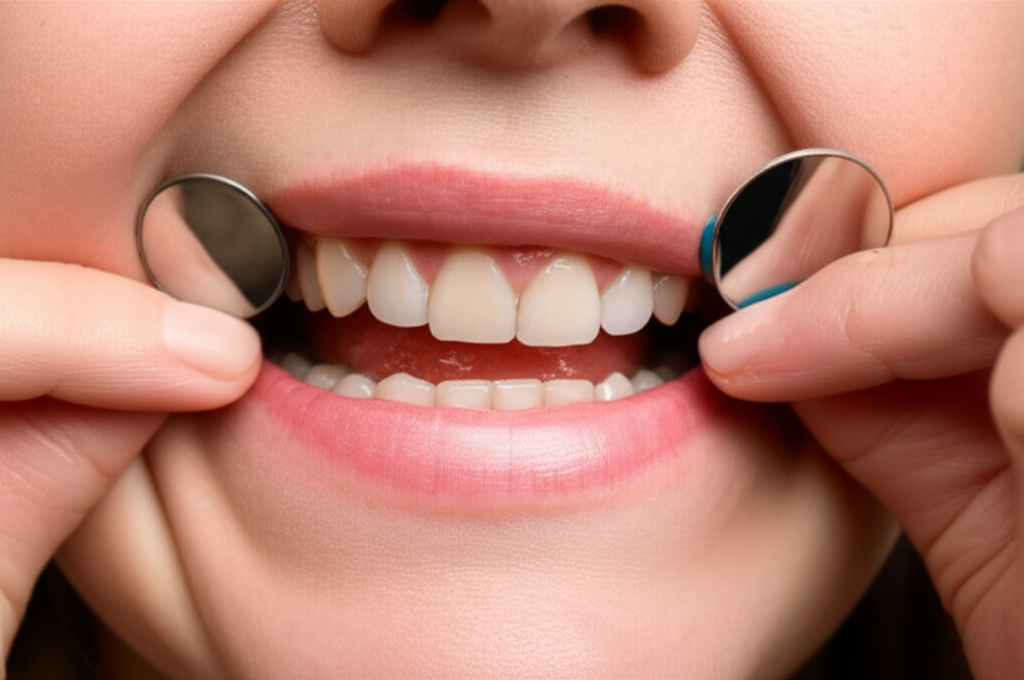
Does Menopause Cause Dental Problems? A Simple Guide To Mouth Health During Midlife
If you’ve ever wondered, “Can menopause mess with my teeth or gums?”, you’re not alone. This article talks about how menopause and your mouth are connected, explains why you might notice changes in your mouth during midlife, and gives you easy steps to help keep your teeth, gums, and body healthy. When you know what to look for and what to do, you can keep your smile looking and feeling good at any age.
Table of Contents
- How Does Menopause Affect Your Mouth?
- What Happens to Estrogen and Why Does It Matter for Teeth?
- Does Menopause Cause Dry Mouth?
- Can Hormonal Changes Lead to Gum Disease?
- Why Does Bone Loss Happen in Menopause?
- What Is Burning Mouth Syndrome?
- Are Teeth More Sensitive or Prone to Cavities During Menopause?
- Does Menopause Change Your Sense of Taste?
- Can Jaw Pain or TMJ Issues Appear in Menopause?
- What Symptoms Should I Look For in My Mouth?
- How Do I Prevent and Manage Menopausal Dental Problems?
- When Should I See My Dentist or Doctor?
- Can Special Solutions Like Dental Implants or Dentures Help?
- [FAQ] (optional)
- Key Takeaways
How Does Menopause Affect Your Mouth?
Let’s be honest—menopause changes almost everything in a woman’s body, and your mouth changes, too. When your hormones shift, they don’t just change how you feel—they also change the inside of your mouth, like your gums, teeth, spit, and jawbone.
During menopause, estrogen goes down. Estrogen is important for strong bones, how much spit you make, and even how your gums deal with germs. When you have less estrogen, it’s like your body loses a helper for your mouth. That’s why your mouth may feel drier, your gums might bleed easily, or your teeth might not feel as strong as before.
Menopause isn’t just a quick thing; these changes can start before your periods end (perimenopause) and keep going after menopause, too. That’s why it’s smart to learn about these changes early. You’re not just “getting older”—there are real reasons for what’s happening in your mouth.
What Happens to Estrogen and Why Does It Matter for Teeth?
Estrogen isn’t just a “woman thing.” It helps keep a lot of body parts healthy, including your mouth. When estrogen drops, you might notice changes in your:
- Bones: Estrogen keeps your jawbone (the bone under your teeth) strong. Less estrogen means the bone can get thin or small.
- Gums: These get more bothered by germs, causing swollen gums or even gum disease (which can make teeth fall out).
- Spit: Less estrogen means less spit. That makes your mouth dry, which is called dry mouth.
Sometimes, the first time you feel a drop in estrogen is in your mouth, before you feel it anywhere else. Taking care of your teeth and gums is not just for looks—it can tell you about your health in general.
Does Menopause Cause Dry Mouth?
Dry mouth is one of the most common mouth problems during menopause, and it’s not just annoying—it can make real dental issues.
Why does this show up? Your spit glands need estrogen to work their best. Less estrogen means less spit. Spit is super helpful—it keeps your mouth wet, fights off germs, and helps you taste and eat.
Trouble with dry mouth:
- Cavities show up more because there isn’t enough spit to wash away sugar and germs.
- Talking, eating, and even swallowing can feel weird or hard.
- You might taste metal in your mouth.
- Mouth sores and infections can show up more.
What can you do?
Drink water a lot, chew sugar-free gum, and stay away from drinks that dry you out (like coffee and alcohol). You can also get spit helpers at the store. For more ideas, check this teeth health resource.
Can Hormonal Changes Lead to Gum Disease?
Yes, they can. Gum disease—from little swelling to big problems—often gets worse around menopause.
What goes on?
Your gums feel sensitive when estrogen is low. This means more build-up of stuff like plaque, which brings:
- Gums that are red or swollen or bleed.
- Gums that pull away from your teeth.
- Loose teeth (since the bone isn’t holding them as tight).
If gum disease isn’t taken care of, you can lose teeth. Women going through menopause are at higher risk because hormones and the immune system aren’t as good at fighting germs.
Hint: Go see your dentist often, and ask them to look at your gums. You might also want to read about dental care and looks for more help to keep your smile great.
Why Does Bone Loss Happen in Menopause?
Menopause is known for making bones thinner (osteoporosis), but many people don’t know this happens in the face, too. That means the bones holding your teeth can get smaller, making teeth feel loose or move out of place.
Here’s why:
When estrogen drops, your body loses its bone protector. This happens not just in your hips or back, but in your jaw, too.
What can happen:
- Losing teeth is easier with weak or thin jawbones.
- Dental implants might not work if you don’t have enough good bone.
- Denture problems: If your bones shrink, your false teeth might not fit right anymore.
Some dentists say you should get your bone checked, especially if your teeth feel different or if bone problems run in your family.
What Is Burning Mouth Syndrome?
Ever feel like your tongue, lips, or whole mouth are burning or tingling and you can’t figure out why? That could be Burning Mouth Syndrome (BMS), which can start during or after menopause.
It happens more than you think. Doctors think it’s caused by hormone changes, nerves, or dry mouth. You might also notice food tastes weird, bitter, or metallic. It often feels worse later in the day.
How to deal with BMS:
There’s no quick fix, but keeping your mouth wet, staying calm, and checking with your dentist or doctor can help. Sometimes hormones or special mouthwashes can make it better.
Are Teeth More Sensitive or Prone to Cavities During Menopause?
Yes, menopause can mean more sensitive teeth and more cavities.
Why does this happen?
With less spit and gums that pull back, the soft part of the tooth near the root can show. Spit used to help protect your teeth, but now there isn’t enough—so germs and acid can cause damage more easily.
Look out for:
- Teeth hurt when you eat or drink something cold, hot, or sweet.
- Cavities show up in new places.
- Old fillings may fall out.
Keep problems away by using toothpaste with fluoride, skipping sugary snacks, and going for regular cleaning. Want to know how cavities and health are connected? Read more about dental diseases and problems.
Does Menopause Change Your Sense of Taste?
Does your food taste “weird” lately? You’re not just making it up. Taste changes happen after menopause.
Estrogen affects taste; when it dips, you may notice:
- Metal taste in your mouth.
- Food seems bland or “off.”
- Bitter or sour taste that sticks.
Dry mouth and some medicines can also change taste. If you’re having trouble, talk to your dentist or doctor.
Can Jaw Pain or TMJ Issues Appear in Menopause?
Yes, menopause can cause trouble with your jaw joint (TMJ).
Why? Your bones change, and things in your jaw that used to cushion it can get thinner. You may feel:
- Jaw pain or stiffness, maybe worse in the mornings.
- Clicks, pops, or grinding when you move your jaw.
- Trouble chewing some foods.
Stress can make TMJ problems worse, so try to relax—and always tell your dentist if your jaw feels or sounds different.
What Symptoms Should I Look For in My Mouth?
Small changes are easy to ignore, but if you notice something, you might be able to stop small problems from getting worse. Watch for:
- Dry mouth that doesn’t go away
- Gums that are red, swollen, or bleeding
- Gums pulling back
- Sensitive teeth
- Burning in your mouth
- Loose or moving teeth
- Tastes that seem metallic or just wrong
- Jaw pain, stiffness, or new noises
- Sores or infections that last
- Trouble with dentures
How Do I Prevent and Manage Menopausal Dental Problems?
You can do a lot to take care of your smile!
Keep To a Good Mouth Care Routine:
- Brush two times a day with a soft brush and toothpaste with fluoride.
- Floss every night—it’s quick but makes a big difference.
- Try mouthwash that doesn’t have alcohol, to kill germs.
Handle Dry Mouth:
- Sip plain water often—carry a bottle with you.
- Try sugar-free gum or lozenges.
- Skip drinks that make you dry out, like coffee and alcohol.
Eat For Strong Teeth:
- Have less sugar and acidic foods.
- Eat more calcium foods (like yogurt, cheese, green veggies) and get enough Vitamin D.
- Snack on crunchy veggies, not candy.
Go To Your Dentist Often:
- See your dentist at least two times a year, or more if your mouth feels “off.”
- Tell your dentist if you’re in menopause and if you have new mouth problems; it helps them decide what’s best for you.
Ask About Hormone Therapy:
- Some people feel better with hormone therapy (HRT) for hot flashes and mouth problems. Ask your doctor about the good and bad sides.
Take Care Of Special Problems:
- If you have Burning Mouth Syndrome, jaw pain, or loose teeth—bring it up soon! Getting help early makes things easier.
TIP: If you want more advanced fixes—like crowns, bridges, implants, or special dentures—go to a professional china dental lab for the newest choices.
When Should I See My Dentist or Doctor?
Don’t wait too long. Call your dentist or doctor if you notice:
- Bleeding that won’t stop
- Really bad tooth pain
- Loose teeth you notice right away
- Sores that won’t heal
- Jaw pain so bad it’s hard to eat or talk
Tell your dentist about your menopause so they can help. Your regular doctor or gynecologist also needs to know if you have mouth problems, since some medicines can make things worse.
For more on what’s normal with teeth as you get older, check out this helpful teeth info guide.
Can Special Solutions Like Dental Implants or Dentures Help?
Yes! Even if you’ve lost bone or teeth, you still have choices:
Dental implants can replace missing teeth, but they work best if your jawbone is healthy enough. If you don’t have enough bone, your dentist might have other ideas.
Dentures are good if you lost lots of teeth. There are new ways to make dentures look and fit better, thanks to digital dental labs.
If your teeth are hurt but not gone, crowns and bridges can fix your smile, and top labs like a crown and bridge lab can make them just for you.
Reference Table: Common Menopause-Linked Dental Problems and Solutions
| Dental Problem | Menopause Link | Tips/What to Do |
|---|---|---|
| Dry Mouth (Xerostomia) | Less estrogen means less spit | Drink water, sugar-free gum, spit helpers |
| Gum Disease | Gums are more sensitive | Brush, floss, dentist visits, mouthwash |
| Bone & Tooth Loss | Bone gets thin, osteoporosis | Dentist visits, check bone, eat more calcium/Vit D |
| Burning Mouth Syndrome | Nerve or hormone changes | Keep mouth moist, stress less, see doctor |
| Sensitive Teeth | Roots show, dry mouth | Toothpaste for sensitive teeth, less sugar, gentle cleaning |
Frequently Asked Questions (FAQ)
Q: Will menopause make me lose all my teeth?
A: No, it doesn’t mean you’ll lose all your teeth, but you have more risk of gum disease and losing bone. Good mouth care and seeing a dentist can stop big problems.
Q: What’s the quickest way to fix dry mouth?
A: Sip water, chew sugar-free gum, and skip alcohol and coffee. If it’s bad, ask your dentist about spit helpers.
Q: Should I use special toothpaste during menopause?
A: Usually, toothpaste with fluoride and a soft brush is enough. Sensitive teeth? Try toothpaste for sensitive teeth.
Q: Can hormone therapy help my mouth?
A: Some women see their mouths get better with hormone therapy, but it’s not for everyone. Ask your doctor first.
Q: Are dental implants possible if my bone is weak?
A: Sometimes! Your dentist can take x-rays. If you need more bone, they can talk about supplements or other fixes.
Key Takeaways: Your Smile Matters at Every Age
- Menopause changes teeth, gums, and jawbone because hormones change.
- Look for dry mouth, gum disease, bone loss, burning feelings, sensitive teeth, and taste changes.
- Keep brushing, flossing, and eating healthy.
- See your dentist two times a year (or more if needed) and tell them about your menopause.
- Don’t ignore mouth problems—get help early!
- New dental labs can give you answers like implants or custom dentures, for more comfort and confidence with digital dental lab options.
Stay in the know, care for your mouth, and don’t let menopause take away your smile! Your mouth is in your hands, and there are always tips and people to help your teeth look and feel great at any age!

